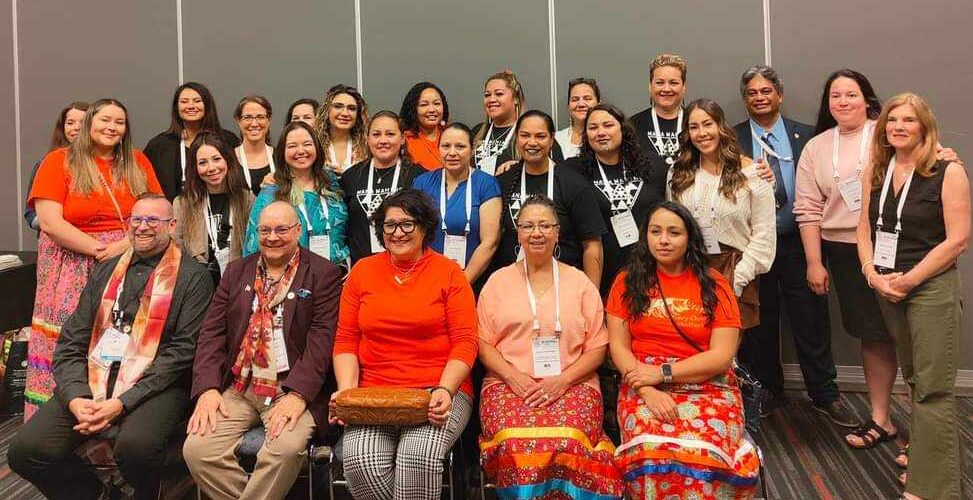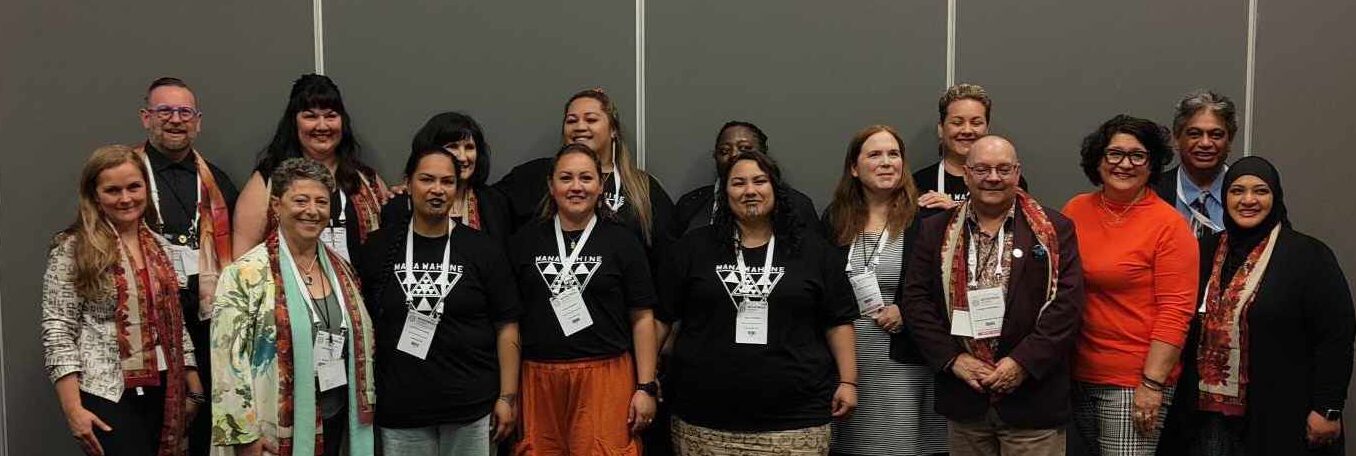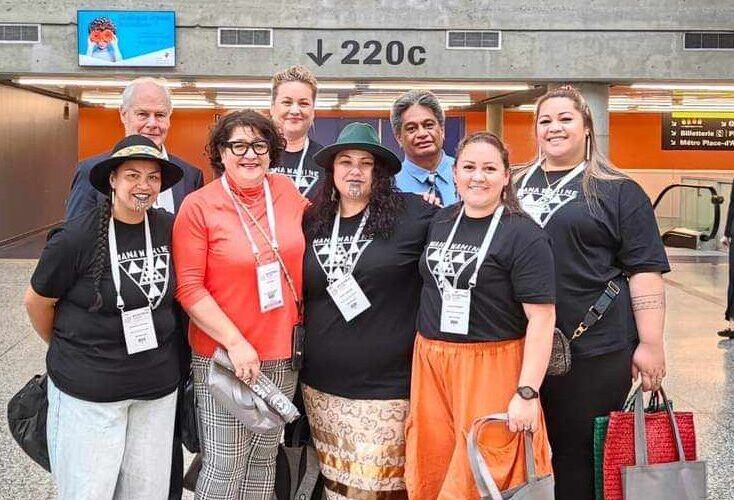We were able to reconnect kanohi ki te kanohi – face to face — with fellow indigenous nurses at the Canadian Nurses Association (CNA), which hosted this year’s ICN congress Nurses together: a force for global health.
Te Poari’s ties with the CNA and Canada’s First Nations people go back to 2019, at the ICN congress in Singapore, where I shared my objections to the veneration of Florence Nightingale every year on the international day of the nurse, due to her harmful colonial views on Māori.
There are some NNAs with no indigenous voices or leaders. So I called on all NNAs to examine how inclusive their indigenous representation was.
A subsequent invitation from CNA to be part of their indigenous leaders series would have seen me travel to Canada for three months to visit and provide support for indigenous nursing leadership. However this was denied by COVID, so the exchanges occurred online. However, our kōrero on growing indigenous nursing leadership has continued.

In 2021, we invited CNA to share our Matariki celebration, connecting via Zoom as we offered karakia at dawn, after which the CNA board and NZNO’s Māori membership committee Te Poari met online and our relationship expanded.
So, last month in Montreal, it felt incredibly emotional to meet our friends and fellow indigenous nurses in person on the other side of the globe and continue our kōrero on how we can work together to uplift the voices of indigenous nurses worldwide.
We have much in common with Canada’s First Nations people – poorer health, shorter lives, disproportionately high incarceration rates. But we also have a fierce determination to change these statistics. For this to happen, we must speak up, share our stories and step into leadership.
Connecting with other like-minded people, creating a space we could work together in, and hold hands across the globe, felt very powerful.
We need indigenous models of care and leadership across national nursing associations (NNAs) to enable that.
There are some NNAs with no indigenous voices or leaders. So I called on all NNAs to examine how inclusive their indigenous representation was. I wanted to plant a seed, to ask: ‘How are those NNAs going to grow and how can they be representative, if they don’t include their indigenous workforce?’
I am also continuing to work with the CNA on how they can include and represent their indigenous voices and establish and extend their commitment to the First Nations people of Canada.
‘Eurocentric’ ICN
ICN has always seemed very Eurocentric – its European member voices seem louder and their issues more readily actioned.
So, this year, we came to Montreal determined our western Pacific presence and voices would be strong, and to support the voice of our western Pacific board member, Fiji nurse leader Alisi Vudiniabola. We want to see more focus from ICN on our region, as it deals with nurse shortages, ethical recruitment and nurse retention, climate change and how to prepare for the increasing likelihood of natural disasters.

The ongoing recruitment of nurses from the western Pacific region to wealthier countries is a huge problem.
Globally, everyone is short of nurses. There are some major financial incentives for nurses from poorer economies to go and work in places like Canada or the United Kingdom where conditions and pay are often far better.
The ICN’s 2019 ethical recruitment statement warned against aggressive recruitment, urging members to train and retain more of their own nurses amid a “catastrophic” worldwide shortage.
Unfortunately, that tactic appears to be ongoing from some. Here in Aotearoa, 40 per cent of our nursing workforce is now made up of internationally-qualified nurses (IQNs), according to the Nursing Council’s latest statistics. Meanwhile, Māori nurses continue to languish at seven per cent of the workforce.
The Government’s health workforce plan appears to be to continue our reliance on IQNs, at least for the next two years, while working to improve student retention.
I did, however, notice an exciting new sense of global awareness at the congress this year. Climate change and growing the youth voice, in nursing leadership and governance, were both a big focus.
There was a shared sense of an overwhelming commitment we all had to wanting to do things differently.
It was inspiring to meet the strong young indigenous leaders coming through. Spending time with some from the CNA, we learned about the ceremonial gifting of names – a process involving fasting and being suspended by barbs – and shared knowledge of traditional healing processes such as rongoā.
Connecting with other like-minded people, creating a space we could work together in and hold hands across the globe, felt very powerful.
At the end, we left a waka huia (treasure box) with some whakataukī for our fellow indigenous nurses. We will continue our communication online, building strength until we see the delegation at our next face-to0-face meeting where we can add more kōrero to the waka huia.
There was a shared sense of an overwhelming commitment we all had to wanting to do things differently.
Kerri Nuku is the kaiwhakahaere of NZNO
NZNO president Anne Daniels’ view on the ICN congress can be found here: Recruiting IQNs not the answer to nursing shortages.




